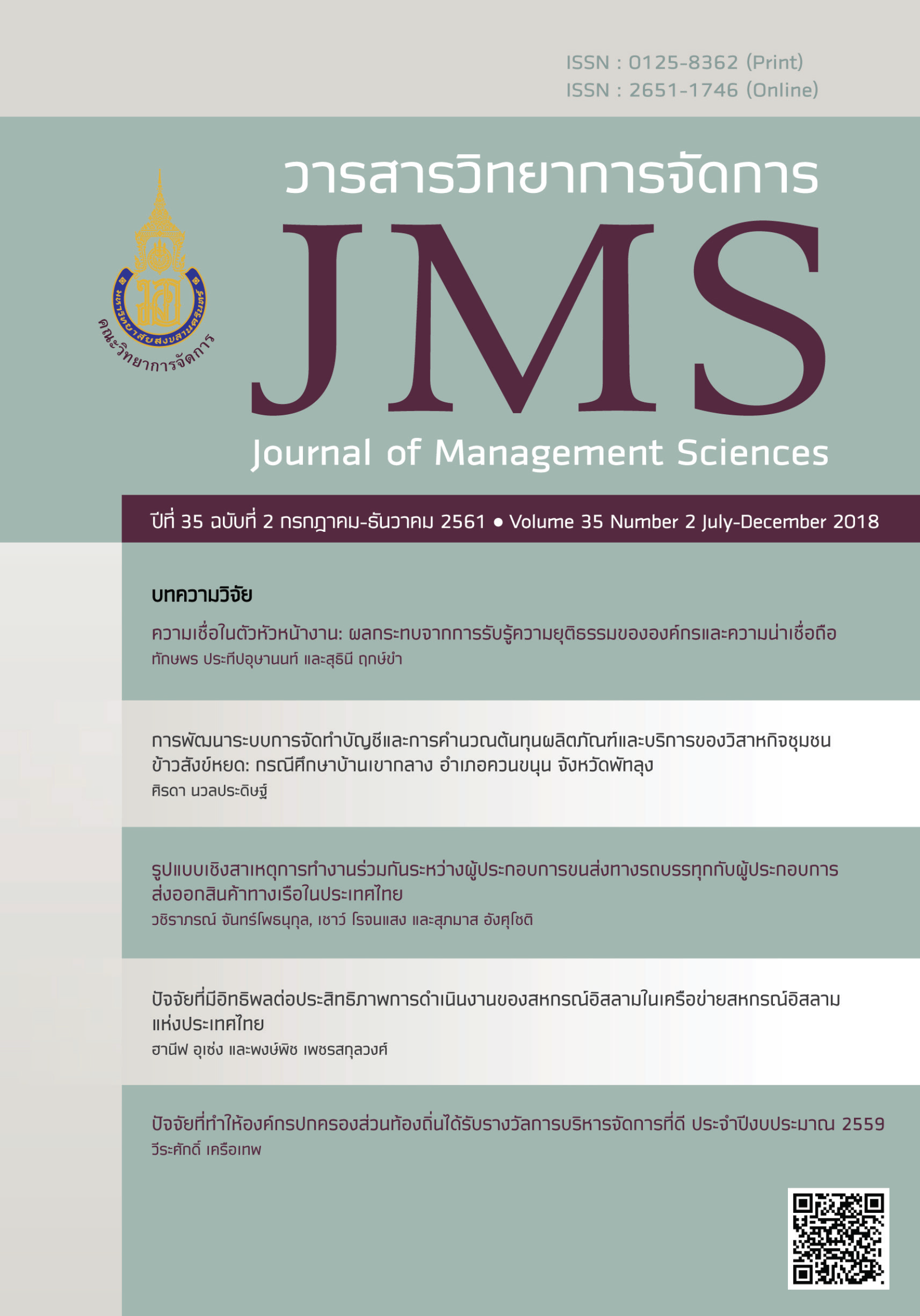Factors Determining the Chance for Winning Local Good Governance Awards for Fiscal Year 2016
Main Article Content
Abstract
This article aims to explore factors determining the likelihood that local governments win Good Governance Award, conferred annually by the National Decentralization Committee. Data from 219 local governments running for the award in Fiscal Year 2016 were compiled and analyzed by logistical regression analyses. The findings show that local contexts and institutional factors do not have significant impacts on the chance of qualifying for the finalists and on the award winning. Indeed, critical factors incorporate local governments’ efforts in mobilizing civic participation and partnerships, employing professional public management techniques, and embarking innovative local development practices. This research suggests that city administrators pay close attention to building local management capacities in handling with communal issues.
Article Details

This work is licensed under a Creative Commons Attribution-NonCommercial-NoDerivatives 4.0 International License.
All published articles are SJMS’s copyright. The editorial board allows all published articles to be copied, excerpted, or disseminated with academic citation.
References
Barzelay, M. (2001). The New Public Management. Berkley, CA: University of California Press.
Brautigam, D., Fjeldstad, O. & Moore, M. (2008). Taxation and State-Building in Developing Countries: Capacity and Consent. New York, NY: Cambridge University Press.
Clarke, S. E. (ed.). (1989). Urban Innovation and Autonomy: Political Implications of Policy Change. Newbury Park, CA: Sage Publications.
Chula Unisearch. (2016). The Review and Nomination of Local Governments for Good Governance Awards in Fiscal Year 2016 (Research Report). Bangkok: Office of the Prime Minister’s Office.
Constitution of the Kingdom of Thailand. (B.E. 2560 (2017)). Government Gazette. 134(40A),1-90.
Decentralization Plan and Process Act. (B.E. 2542 (1999)). Government Gazette. 116(114A), 48-66.
Fischel, W. A. (2001). The Homevoter Hypothesis. Cambridge, MA: Harvard University Press.
Graddy, E. A., & Chen, B. (2006). Influences on the Size and Scope of Networks for Social Service Delivery. Journal of Public Administration Research and Theory. 16(4), 533-552.
Hood, C. (1991). A Public Management for All Seasons? Public Administration, 69(1), 3-19.
Krueathep, W. (2004). New Public Management: New Challenges for Local Government. Political Science Review, 39(1), 19-73.
Krueathep, W. (2005). Local Government Initiatives. Bangkok: Thailand Research Fund (TRF).
Krueathep, W. (2013). Municipal Responses to Fiscal Austerity: The Thai Case. International Journal of Public Administration, 36(7), 453 - 468.
Krueathep, W., Riccucci, N. M., & Suwanmala, C. (2010). Why Do Agencies Work Together? Journal of Public Administration Research and Theory, 20(1), 157-185.
Krueathep, W., Suwanmala, C., Meechai, T., Komut, W., Wijitkosum, S., Eingchanil, A. …. Ditaudom, J. (2014). Fifteen-Year Review of Thai Decentralization Progress. Bangkok: Chulalongkorn University Printing House.
Office of Public Sector Development Commission. (2009). Manual on Good Governance Rating. Bangkok: Premier-Pro Printing.
Puang-ngam, K. (2010). Local Governance on Transparency and Participation. Bangkok: Local Government Development Foundation.
Rodden, J. A. (2006). Hamilton’s Paradox: The Promise and Peril of Fiscal Federalism. New York, NY: Cambridge University Press.Royal Decree on Criteria and Procedures for Good Governance of 2003.
Suwanmala, S., Krueathep, W. Petchprasert, S. & Jitrajang, K. (2004). Local Government Innovations (Research Report). Bangkok: Thailand Research Fund (TRF).
United Nations Development Programme. (2014). Governance for Sustainable Development. Retrieved May 1, 2017, from https://www.undp.org/content/dam/undp/library/Democratic%20Governance/Discussion-Paper--Governance-for-Sustainable-Development.pdf
United Nations Economic and Social Commission for Asia and the Pacific. (2009). What is Good Governance? Retrieved May 1, 2017, from https://www.unescap.org/resources/what-good-governance
World Bank (1989), Sub-Sahara Africa: From Crisis to Sustainable Growth. Washington, DC: The World Bank.
